Filter by
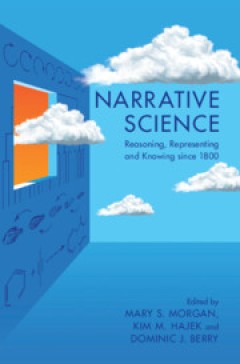
Narrative Science : Reasoning, Representing and Knowing since 1800
Narrative Science examines the use of narrative in scientific research over the last two centuries. It brings together an international group of scholars who have engaged in intense collaboration to find and develop crucial cases of narrative in science. Motivated and coordinated by the Narrative Science project, funded by the European Research Council, this volume offers integrated and insight…
- Edition
- -
- ISBN/ISSN
- 9781009004329
- Collation
- xvi, 500 p ; ill
- Series Title
- -
- Call Number
- 501.4 NAR
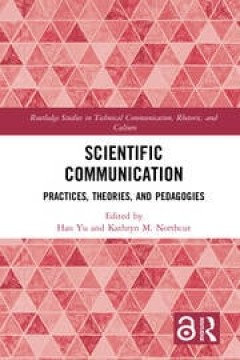
Scientific communication : practices, theories, and pedagogies
This book addresses the roles and challenges of people who communicate science, who work with scientists, and who teach STEM majors how to write. In terms of practice and theory, chapters address themes encountered by scientists and communicators, including ethical challenges, visual displays, and communication with publics, as well as changed and changing contexts and genres. The pedagogy sect…
- Edition
- -
- ISBN/ISSN
- 9781315160191
- Collation
- vi, 333 p. ; ill
- Series Title
- -
- Call Number
- 808.0665 NOR s
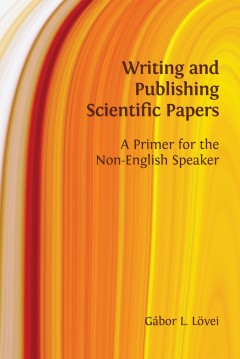
Writing and publishing scientific papers : a primer for the non-English speaker
Gábor Lövei’s scientific communication course for students and scientists explores the intricacies involved in publishing primary scientific papers, and has been taught in more than twenty countries. Writing and Publishing Scientific Papers is the distillation of Lövei’s lecture notes and experience gathered over two decades; it is the coursebook many have been waiting for. The book�…
- Edition
- -
- ISBN/ISSN
- 9781800640917
- Collation
- xi, 198 p. ; ill
- Series Title
- -
- Call Number
- 808.1 LOV w

Science in movements : knowledge control and social contestation in china's …
This book analyses and compares the origins, evolutionary patterns and consequences of different science and technology controversies in China, including hydropower resistance, disputes surrounding genetically modified organisms and the nuclear power debate. The examination combines social movement theories, communication studies, and science and technology studies. Taking a multidisciplinary a…
- Edition
- -
- ISBN/ISSN
- 9781003160212
- Collation
- XIV, 236 p.
- Series Title
- Chinese Perspectives on Journalism and Communication,
- Call Number
- 306.4509510905 JIA s
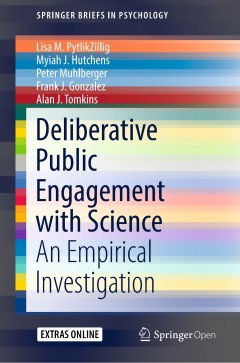
Deliberative public engagement with science : an empirical investigation
This compact open access reference delves beyond popular concepts of educated consumers and an informed public by examining the science behind deliberative engagement. Using data from four longitudinal studies, the authors assess public engagement methods in deliberative discussions of ethical, legal, and social issues concerning innovations in nanotechnology. Coverage includes the theoretical …
- Edition
- -
- ISBN/ISSN
- 9783319781600
- Collation
- xi, 129p. : ill.
- Series Title
- -
- Call Number
- 155.2 PYT d
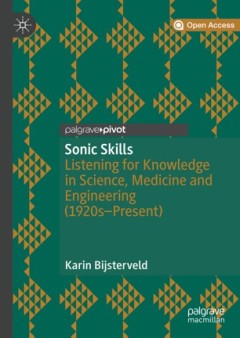
Sonic skills : listening for knowledge in science, medicine and engineering (…
It is common for us today to associate the practice of science primarily with the act of seeing—with staring at computer screens, analyzing graphs, and presenting images. We may notice that physicians use stethoscopes to listen for disease, that biologists tune into sound recordings to understand birds, or that engineers have created Geiger tellers warning us for radiation through sound. But …
- Edition
- -
- ISBN/ISSN
- 9781137598295
- Collation
- ix, 174p. ill.
- Series Title
- -
- Call Number
- 501.4 BIJ s
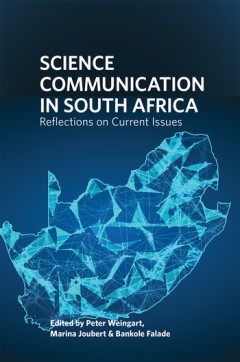
Science communication in South Africa : reflections on current issues
"Why do we need to communicate science? Is science, with its highly specialised language and its arcane methods, too distant to be understood by the public? Is it really possible for citizens to participate meaningfully in scientific research projects and debate? Should scientists be mandated to engage with the public to facilitate better understanding of science? How can they best communicate …
- Edition
- -
- ISBN/ISSN
- 9781928502050
- Collation
- iv, 231p. : ill.
- Series Title
- -
- Call Number
- 001.4028558 SCI s
 Computer Science, Information & General Works
Computer Science, Information & General Works  Philosophy & Psychology
Philosophy & Psychology  Religion
Religion  Social Sciences
Social Sciences  Language
Language  Pure Science
Pure Science  Applied Sciences
Applied Sciences  Art & Recreation
Art & Recreation  Literature
Literature  History & Geography
History & Geography